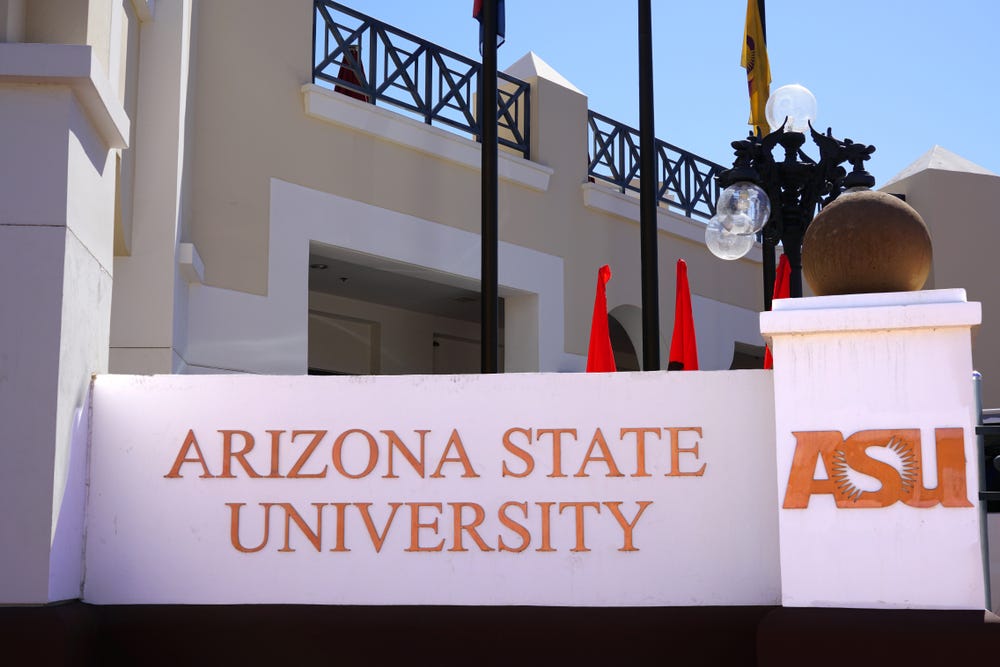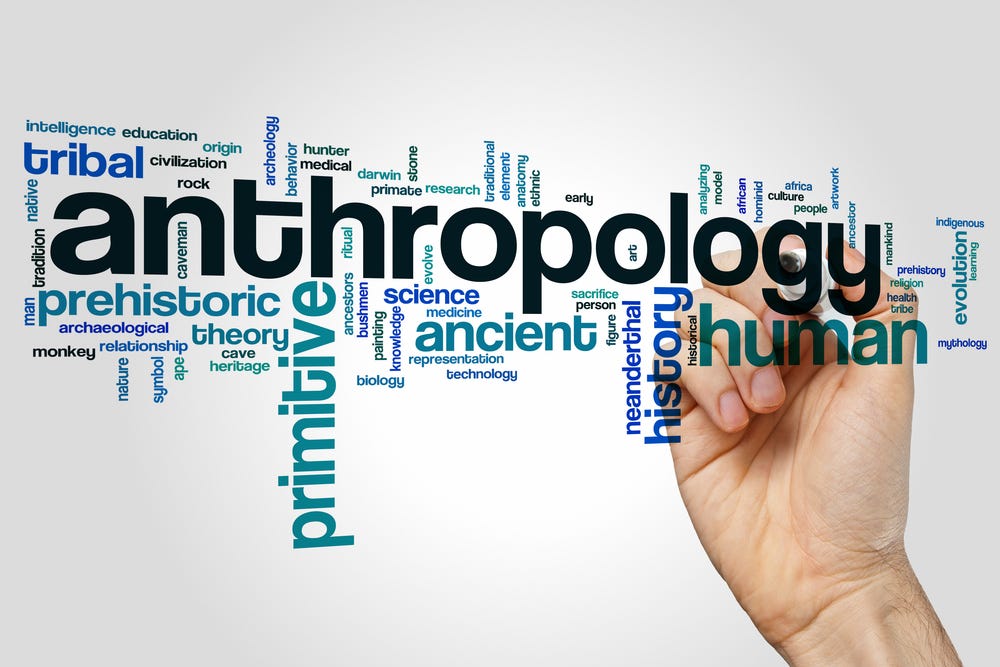E-Pluribus | June 20, 2023
Legal mis-education; wrongthink is punished at Arizona State; and anthropology owes us an apology.
A round-up of the latest and best writing and musings on the rise of illiberalism in the public discourse:
John O. McGinnis: Law, Betrayed
John McGinnis writes at City Journal that it’s one thing for the educational system in general to skew left, but the ideological tilt of the legal educational system has even deeper implications. If the foundation of equal justice is eroded, the whole society suffers.
Any free society needs the rule of law, the adversary system, and a culture of free speech and inquiry in law, but this is particularly true of the United States. Nearly two centuries ago, Alexis de Tocqueville observed of the American republic that almost all political issues there became legal issues, and that remains the case today. It’s the law that preserves the U.S. Constitution’s balance of powers, preventing tyranny.
[. . .]
Today, many, if not most, law schools, like English departments, have become ideologically and structurally committed to the Left, especially on issues of race and gender. Since the new ideology of race and gender claims to affect almost everything, almost everything that law schools do is now distorted; the freedom of speech and inquiry that makes the adversary system work for society’s benefit is threatened. A focus on identity rather than argument leads directly to cancel culture—even at law schools, where debate should be central, because ideas that some believe threaten identity are rendered off-limits. And the circle of cancellation is ever widening: Stanford students shouted down Judge Kyle Duncan and prevented him from speaking at a recent Federalist Society event, not even because of what he was to talk about there but because of his past writings on other subjects.
[. . .]
[L]aw school administrations now pressure faculty to be more left-wing—on race and gender, above all. Many require professors to submit a statement about how they are advancing diversity, equity, and inclusion (DEI) as part of consideration for hiring or raises. At some schools, DEI administrative staff who are not faculty now participate in interviews with job candidates.
Pursuing DEI is a thinly veiled code for the leftist project on race and gender. Thus, adding a unit on how a particular body of law systematically oppresses minorities and women counts positively on a DEI statement, as would scholarship that argues for a more race- and gender-conscious society. Articles on the virtue of color blindness, though, would not count and might even be disqualifying. Such statements also encourage faculty to add units on race and gender to every aspect of the curriculum. Conservative, libertarian, and even some traditional liberal legal scholars obviously can’t compete on this terrain. Given the need for freedom of thought and speech in law schools to facilitate the rule of law, mandatory DEI statements directly threaten the law school’s true mission.
Read it all here.
Ann Atkinson: I Paid for Free Speech at Arizona State
A university is meant to expose young people to a wide variety of views and opinions, but according to Ann Atkinson at the Wall Street Journal, Arizona State University is putting some blinders on their students. Atkinson writes about the price she and others have paid for inviting the “wrong” kind of people to speak.
[B]eneath [Arizona State University’s] written commitment to intellectual diversity lies a deep hostility toward divergent views. The latest trouble started in February when the Lewis Center hosted Robert Kiyosaki, Dennis Prager and Charlie Kirk for an event on “Health, Wealth, and Happiness.” This nonpartisan program was part of a popular speaker series focused on connecting students with professionals who can offer career and life advice.
At the names of Messrs. Prager and Kirk, the faculty of ASU’s honors college were outraged. Thirty-nine of its 47 faculty signed a letter to the dean condemning the event on grounds that the speakers are “purveyors of hate who have publicly attacked women, people of color, the LGBTQ community, [and] institutions of our democracy.” The signers decried ASU “platforming and legitimating” their views, describing Messrs. Prager and Kirk as “white nationalist provocateurs” whose comments would undermine the value of democratic exchange by marginalizing the school’s most vulnerable students.
[ . . . ]
I ignored their threats and the event was a resounding success—1,500 people attended in person, another 24,000 joined us online. There were no protests, no disturbances, and no traumatized students. But the faculty’s illiberal tantrum was devastatingly effective on two fronts.
First, the scare tactics worked on undergraduates. Many students told me they were intimidated by professors into not attending. Some would attend only if we promised that cameras wouldn’t face the audience. Students worried that attending or expressing interest in the event would hurt them academically. Grades for ambiguous things like “class participation” give professors the ability to punish students for their politics. The success of professors’ fearmongering was reflected in the audience, where older attendees outnumbered the students.
Second, the event cost its organizers dearly. Shortly after “Health, Wealth, and Happiness,” Lin Blake, the events operations manager at ASU Gammage Theater, was fired by ASU Gammage. Before her firing, Ms. Blake told me that she was “berated by ASU Gammage leadership for coordinating an event that did not align with the values of ASU Gammage.” And as of June 30, ASU will dismantle the Lewis Center and terminate my position as its executive director. Barrett Honors College leadership told me this is purely a business decision, despite my raising more than $500,000 in the last year through the center.
Read the whole thing.
Geoffrey Clarfield: Nurture, Not Nature
Many factors have gone into creating the “woke” mentality that influences so many in our society today, and while “anthropology” wouldn’t make it on most people’s top-10 lists, Geoffrey Clarfield says at Minding the Campus that there’s ample reason to point the finger.
American cultural anthropology has a lot to answer for.
Its icons—people like Franz Boas, Margaret Mead, Ruth Benedict, and Edward Sapir—were the indispensable precursors of the woke ideology now so deeply entrenched in our schools and universities, courts, politics, and business.
This is not to say that cultural anthropology is the sole source of wokeism, but that its contribution was seminal. Its mid-twentieth-century practitioners took what began as a simple field method, cultural relativism, and by insensible degrees transformed it into a philosophical movement. What started out as the common-sense proposition that you could only understand a culture from the inside was soon transformed into the rather different notion that every culture was just as good as every other culture, and that there was no ground on which to prefer one over the other.
There is nothing about the first proposition that leads inexorably or logically to the second. So, what might explain the leap of faith and logic? One little-examined possibility is that these pioneers of American cultural anthropology were looking outside America for examples of cultures that accepted, or even celebrated, sexual and other behaviors that appealed to them but that were socially sanctioned at home.
The logic is clear. If Culture A finds Behavior B normal, then, when other cultures designate B “abnormal,” that designation is arbitrary, not natural. If America finds same-sex attraction “unnatural,” but South Sea Islanders don’t, then America cannot claim its attitudes are rooted in nature. They must be mere prejudice instead, and persistent prejudice cannot be morally justified.
But what if these early practitioners of cultural anthropology, driven by a desire to “normalize” their own behavior at home, committed the cardinal scientific sin of reading into cultures what they needed to find there, rather than describing those cultures as they found them? If so, subsequent anthropological investigations of those same cultures would not reproduce the pioneers’ original findings, and cultural anthropology’s contribution to the intellectual foundations of wokeism would be revealed as a sham and a travesty
Read it all.
Around Twitter
Last week’s round-up included a conversation between Yascha Mounk and Tomiwa Owolade on “What We Get Wrong About Race.” Owolade has now written more on the subject for the Free Press:
Jesse Singal and Ben Ryan, both of whom write extensively about children and transgender issues, dispute the idea that hateful responses are the exclusive purview of the right:
And finally, the linked article begins: “Difficult as it may be to believe, children at a school in East Sussex were reprimanded last week for refusing to accept a classmate’s decision to self-identify as a cat....” Maybe those “cat litter boxes in schools” stories weren’t so far fetched after all?










